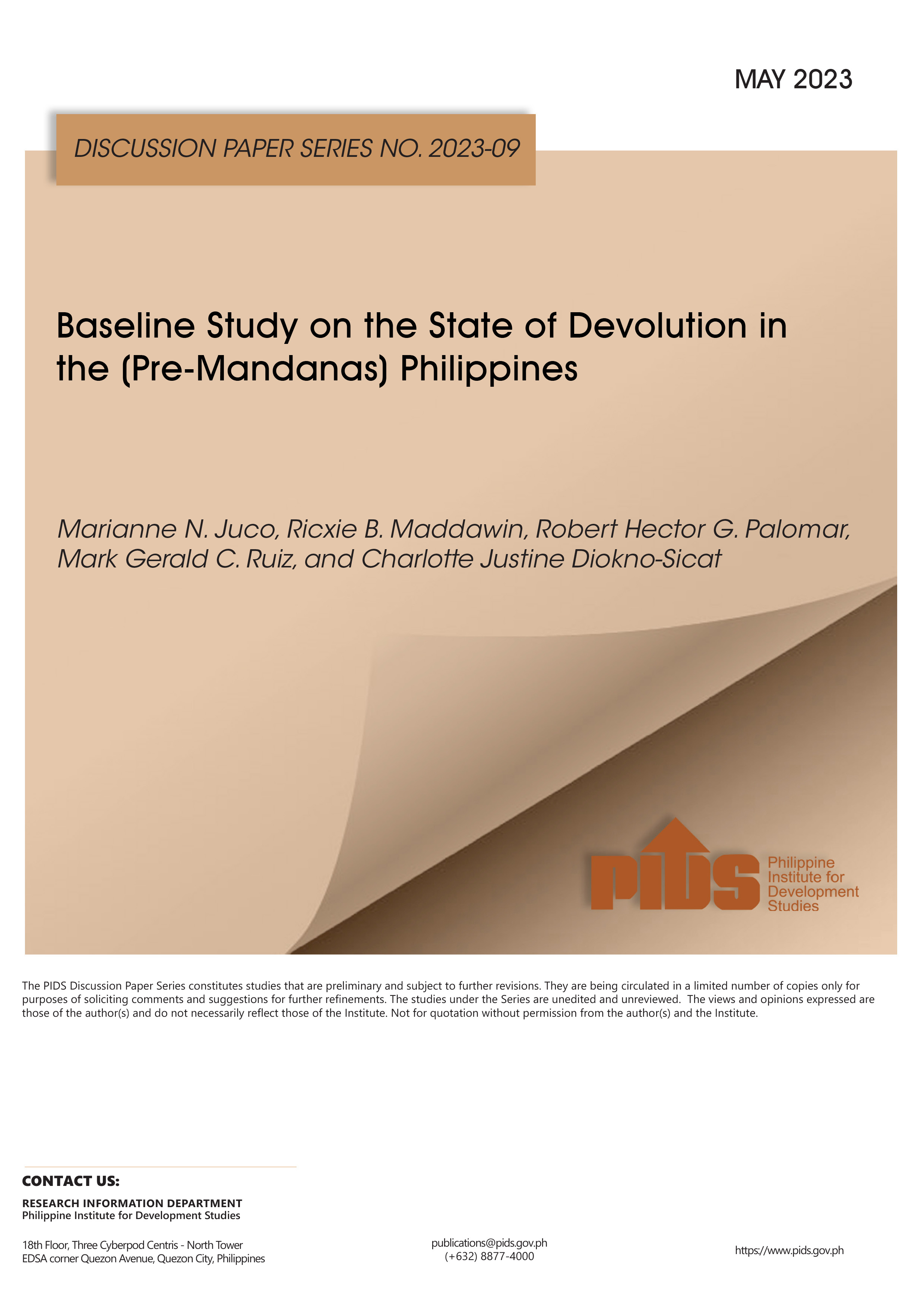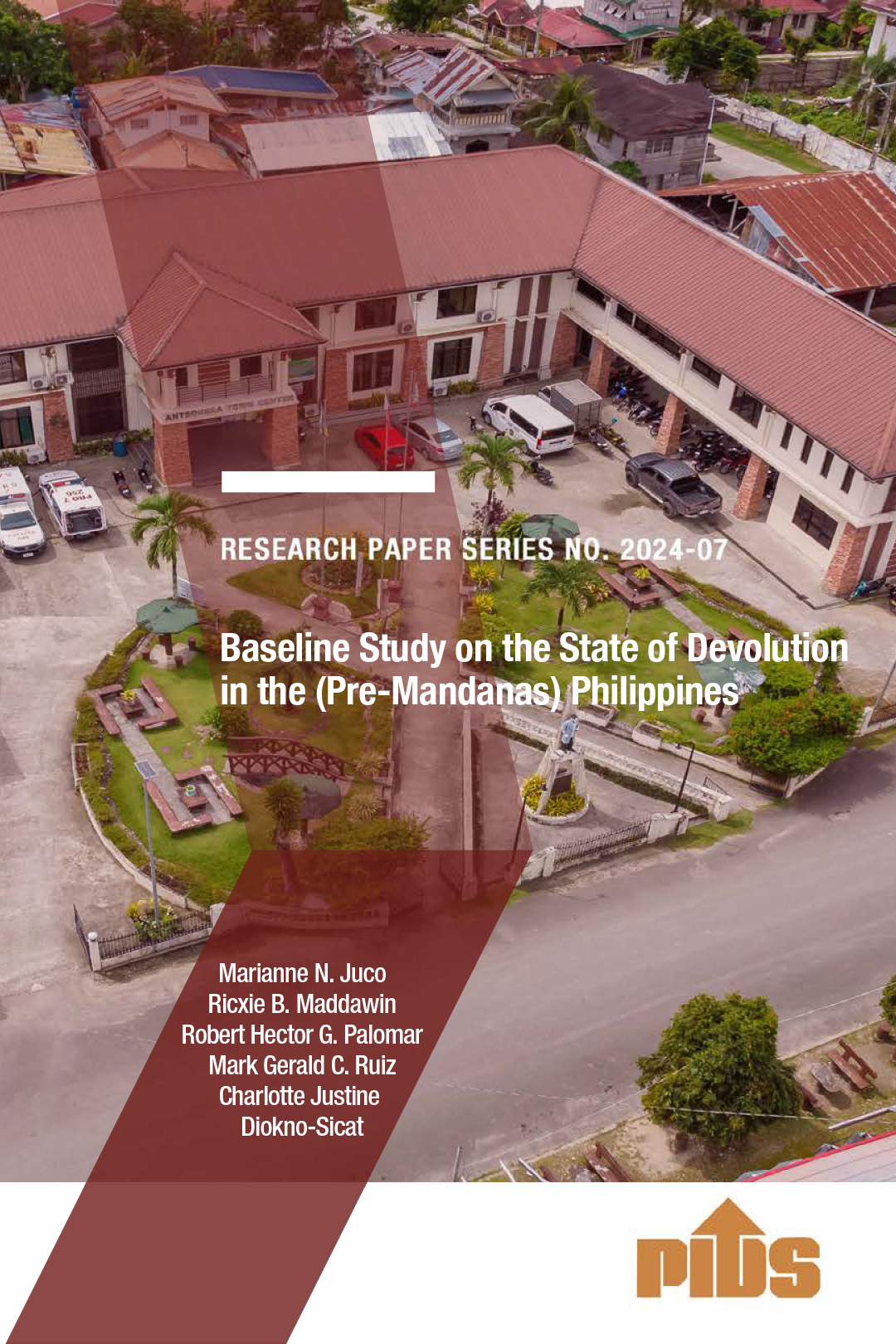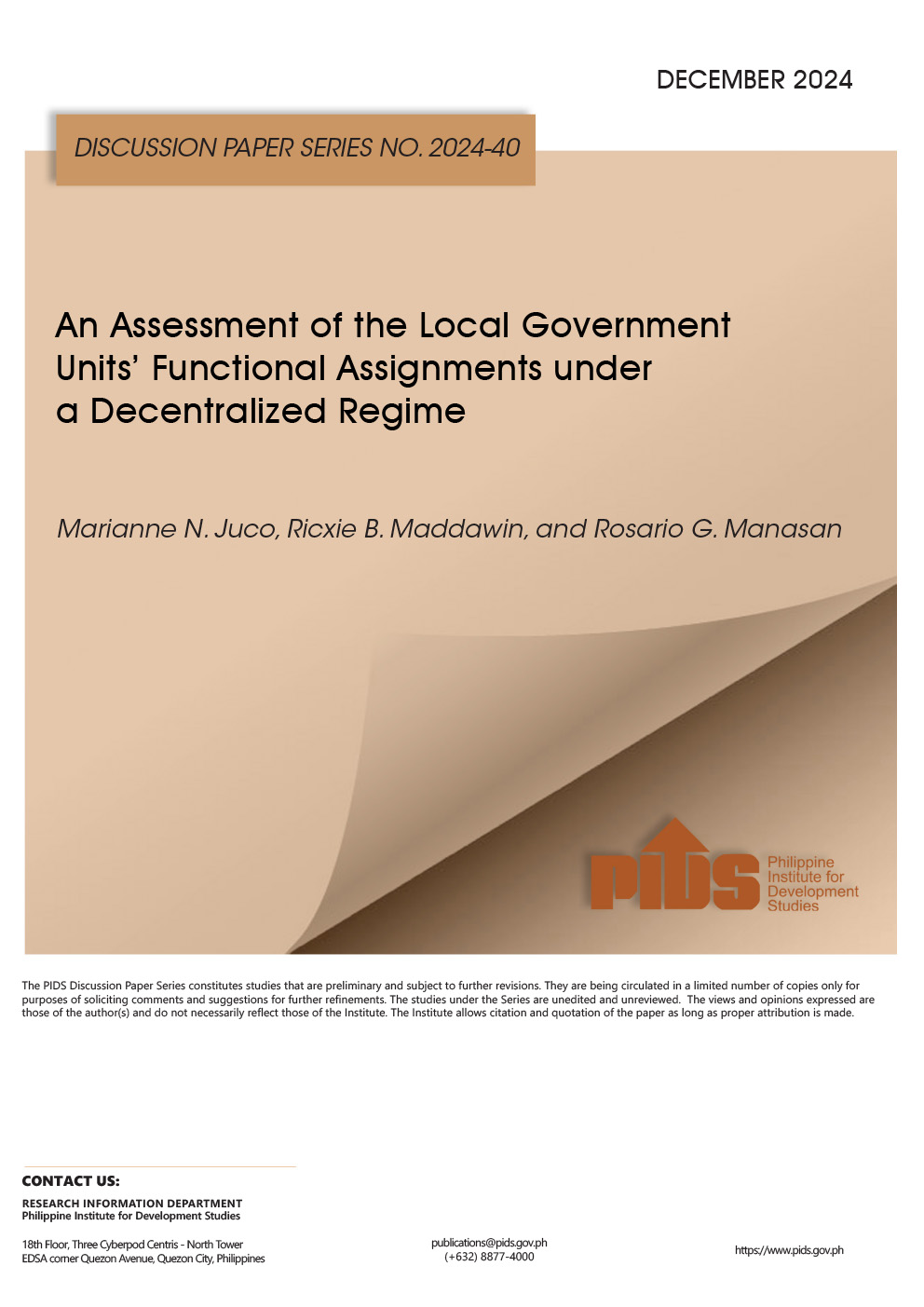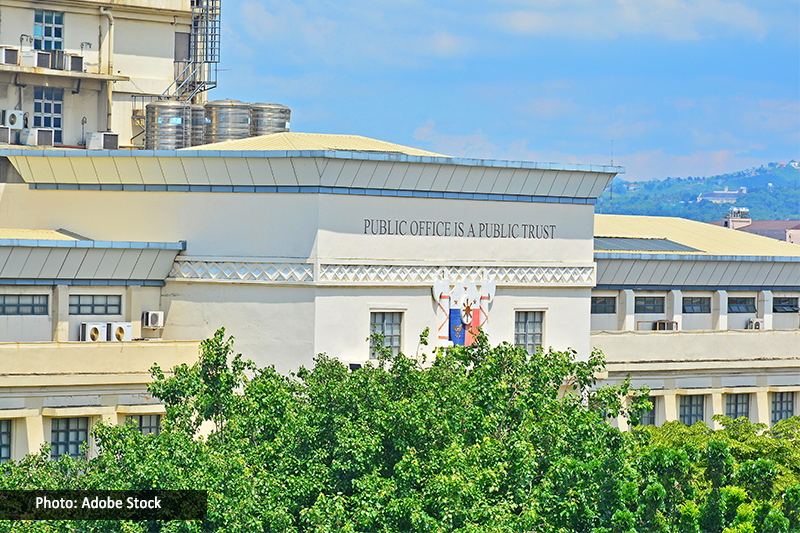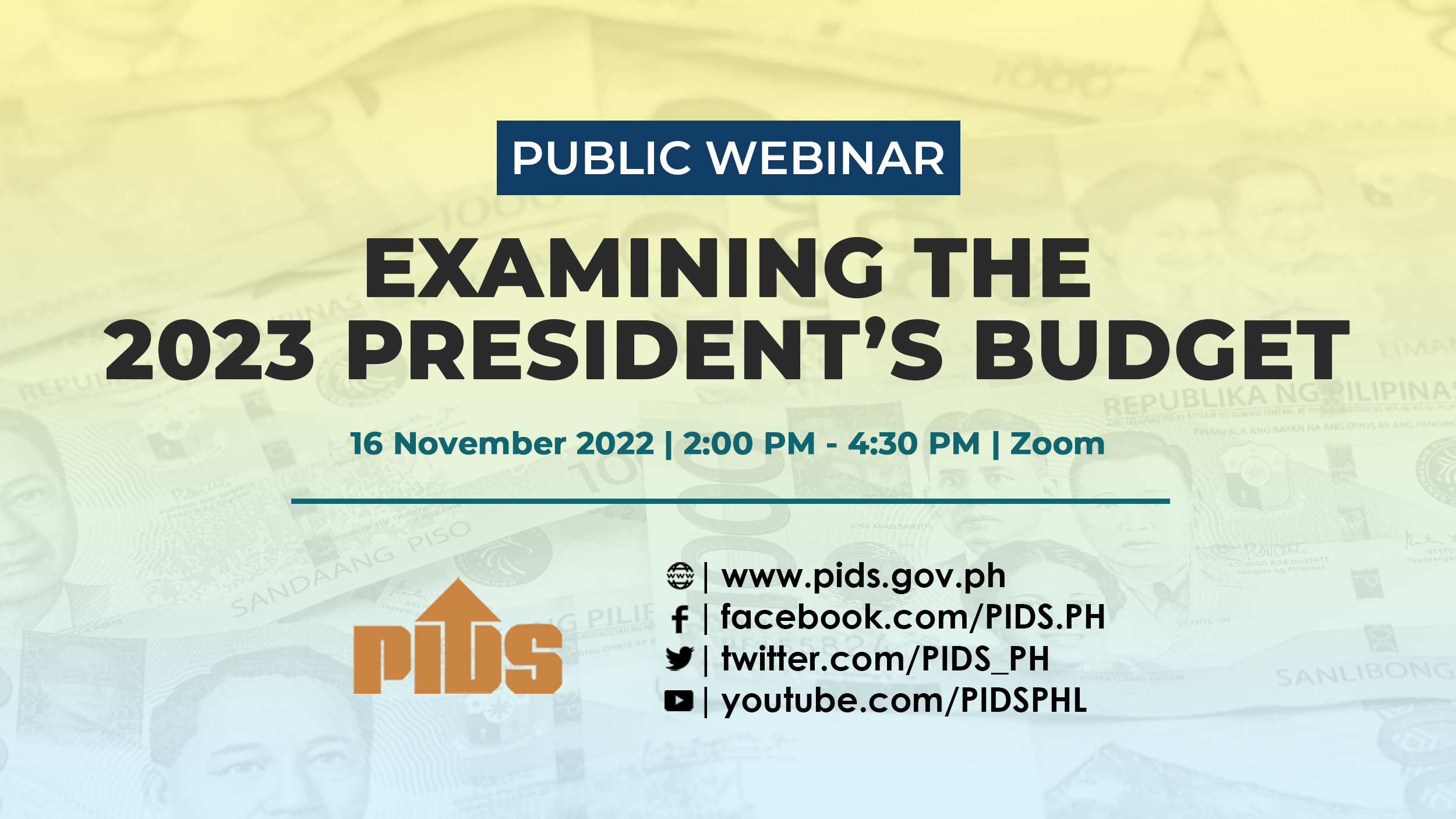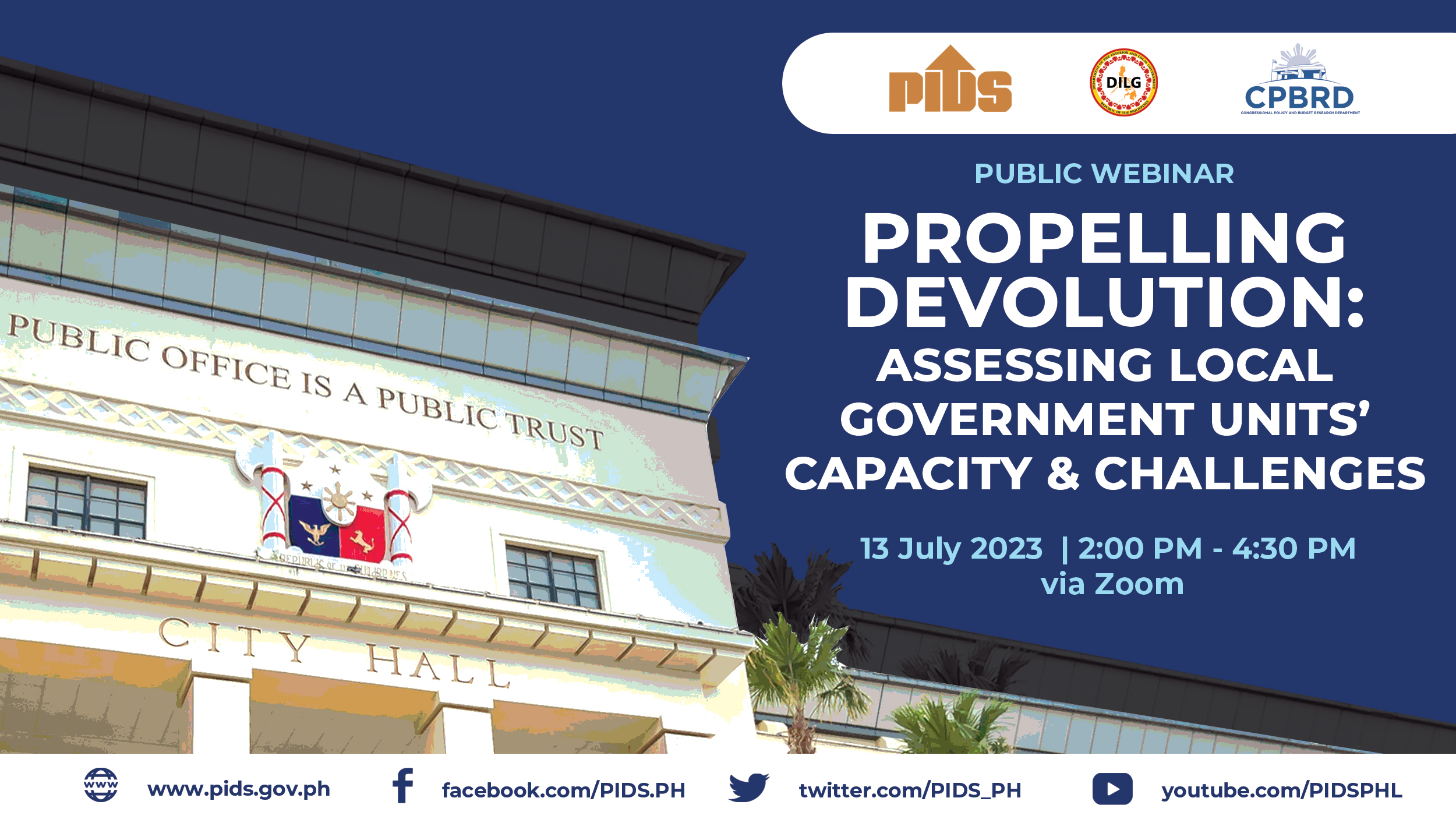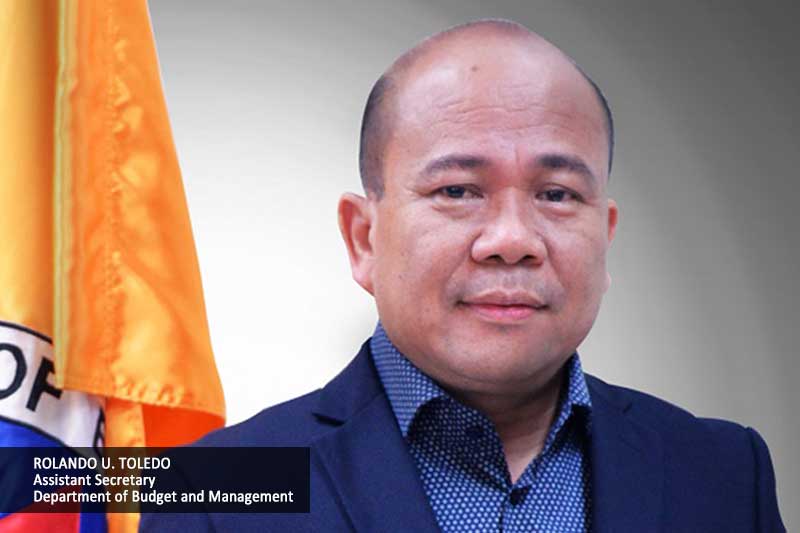
Identified poor, disadvantaged, and lagging local government units (LGUs) are expected to receive financial assistance through the Growth Equity Fund (GEF) to help them fully and efficiently implement their devolved functions and services.
This was according to Department of Budget and Management Assistant Secretary Rolando Toledo, who spoke as a discussant at a public webinar organized by the Philippine Institute for Development Studies (PIDS) recently. The webinar featured the study “Analysis of the 2023 President’s Budget” by former PIDS Research Fellow Charlotte Justine Diokno-Sicat, PIDS Senior Research Specialist Robert Hector Palomar, and Research Analyst Mark Gerald Ruiz.
The GEF is part of the fund set aside for identified LGUs beset with “marginalization, unequal development, and high poverty incidence” to help them adjust and fully implement their devolved functions and services.
Specifically, LGUs eligible to receive the fund are provinces and cities in the fourth income bracket and fourth and fifth income class municipalities and their barangays in Geographically Isolated and Disadvantaged Areas.
Identified LGUs must have their devolution transition plans approved by the local council or Sanggunian to be eligible to receive their share of the PHP 1.25 billion GEF.
The full devolution of functions and services to LGUs is stipulated in Executive Order 138. It was a response to the Supreme Court’s Mandanas-Garcia ruling, which expanded the source of funds for LGUs from national internal revenue taxes to all national taxes.
“The Executive Order only provides the full devolution of functions and services which have already been devolved to LGUs, pursuant to Section 17 of the Local Government Code of 1991 and other subsequent laws. There are no new or additional functions being devolved to the LGUs,” Toledo clarified.
“The GEF will be automatically and directly released to the beneficiary LGUs because they are pre-identified. While they are not required to submit documentary requirements prior to the release of the fund, these LGUs are enjoined to comply with the guidelines and policies to be prescribed by the DBM,” Toledo stated.
While LGUs have received an increase of PHP 185.17 billion or a total of PHP 959.04 billion in 2022, Toledo reminded LGUs that their budget—now called National Tax Allotment (NTA)—will be smaller in 2023. “The NTA is based on the actual collection of the national government in the third preceding year. The 2023 NTA amounts to PHP 820.2 billion, which is significantly lower than in 2022. This is due to the lower revenue collection in 2020 because of the muted economic activity during the pandemic,” he explained.
Toledo added that the GEF shall not be used for travel and administrative costs; payment of personnel services; registration and related fees for trainings; purchase, maintenance, or repair of furniture, fixtures, appliances, or motor vehicles; and other expenses that are irrelevant to the devolved functions and services.
Watch the webinar at https://fb.watch/gVTpHDTSv9/ and https://youtu.be/4qsPfPLhPek.
For more videos of PIDS events, go to https://pids.gov.ph/videos. ###

